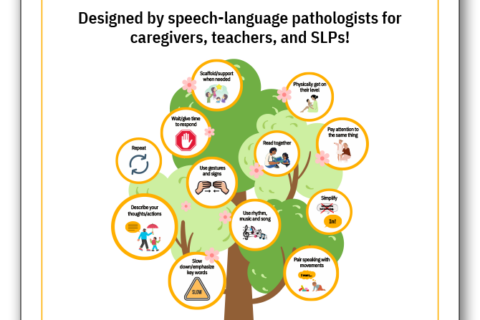How Much Does Speech Therapy Cost?

At any stage in life, you or your loved one may need treatment for speech, language, voice, or swallowing disorders. Not only are the physical effects difficult to handle, but the costs associated with therapy may also seem overwhelming.
You have enough on your plate as it is, so we spoke with Open Lines® founder and executive director Dr. Jessica Galgano to provide context on which factors determine speech therapy costs and highlight other things to consider when comparing prices.
Factors That Determine Speech Therapy Cost
The average cost of speech therapy depends on many factors including the intensity of daily practice, frequency of weekly sessions, and the depth and extent as well as the delivery method of your treatment plan.
Therapy can range from something less intensive, such as improving public speaking skills, to more complex issues such as aphasia from a stroke. In your first meeting with a speech-language pathologist (SLP), they will examine your medical history and test your strengths and weaknesses. Your therapist will then develop a treatment plan outlining specific goals and a map to achieve them, including recommended techniques and methods, the length of your session times, the number of days per week treatment should take place, and a specific home exercise plan to help you make faster progress towards your goals.
“Some individuals opting for an intensive post-stroke program or LSVT LOUD voice therapy with speech sessions four to five times a week for one or more hours each day, combined with a home exercise program, will see significant improvement in one month,” Dr. Galgano said. “If you are participating in speech therapy to support a child’s speech and language development, you can also expect to see results within one to three months.”
Individual goals may vary, and you can continue speech exercise sessions after completing an intensive program to meet your specific long-term maintenance needs. In general, Dr. Galgano said motivation and intensity of practice are some of the most significant factors that determine the speed and quality of results.
You have options when it comes to how you will receive treatment. Many SLPs offer both in-office and online therapy sessions. At Open Lines®, you can visit our clinic in the Upper West Side of Manhattan, join a telehealth session where you use a secure line to connect with an SLP, or we can even set up in-home sessions where a therapist can visit your home. Health and safety are Open Lines’ highest priorities, so you should feel comfortable knowing the Open Lines staff use appropriate personal protective equipment, frequently wash our hands, provide well-ventilated areas with high-grade medical filters, and strictly follow CDC, ASHA, and NYULSOM guidelines for protection.
The ease and convenience of receiving speech therapy in your own home will affect the cost. However, there is no difference between the cost of in-office and telehealth sessions.
Affordable Speech Therapy
There are several qualifications to consider when you are searching for a speech therapist. Dr. Galgano said you should ensure an SLP holds the American Speech-Language-Hearing Association (ASHA) Certificate of Clinical Competence in Speech-Language Pathology (CCC-SLP), which requires a master’s, doctoral, or other recognized post-baccalaureate degree with mandated professional development required to maintain credentials.
“Expertise in rehabilitation is influenced by relevant experience as well as associated factors, such as learning styles and educational opportunities, over a period of time,” she said.
To account for this and to make services more affordable to more people in need of quality care, we offer tiered pricing options. Broken down into three tiers, the pricing model is based on the clinician’s expertise, experience, and level of training. In a way, think of it as a sliding scale.
Tier 1 includes therapy from an advanced beginner who uses principles based on experience to guide their actions. By comparison, therapists in Tier 2 execute routine skills concentrating on outcomes rather than specific tasks. They use past episodes to develop a feeling of “intuition.” In Tier 3, an expert therapist treats you. These experts grasp each situation and zero in on the origin of the problem without having to consider alternative diagnoses or solutions.
“In summary, the comfort level and proficiency of each specialist’s skills develop along a trajectory,” Dr. Galgano said.
The knowledge each SLP has comes from observational experiences, teaching and learning opportunities, and working with mentors. We require our specialists to receive clinical fellowships and long-term mentorships to expedite learning and transition from a postgraduate student to an experienced, expert-level SLP.
Next Steps and Things to Consider
It is important to remember you always have options, even after your initial visit and assessment. Following the assessment, your SLP will analyze your needs and determine if you are a candidate for a program. Options are always discussed, optimized, and agreed upon by you and the team before moving forward.
Whatever you decide, be sure to check with your insurance company for specific coverage. For example, Open Lines® is not an in-network provider with insurance companies. However, many clients submit claims to the insurance company for successfully out-of-network reimbursement to cover all or part of their services.
Your coverage may also depend on what your insurance plan deems medically necessary. Speech therapy to improve a lisp may not be covered, but your insurance provider may view speech therapy to treat a voice disorder as a medical necessity. Exercise programs are not covered by insurance companies.
At Open Lines®, individuals have access to an expert-level, well-integrated clinical team with a treatment plan specifically designed for their individual needs and goals to optimize learning. Guided by Dr. Galgano and her team of expert international and national expert colleagues and mentors, our team combines an emphasis on research with clinical expertise to provide the best, personalized speech therapy in–office, online, or in your home.
If you’re struggling with communication difficulties, it’s time to turn to Open Lines®. Contact us via phone (212-430-6800), email [email protected], or by filling out our convenient contact form. Improve your communication skills and unlock your potential with Open Lines® Speech and Communication in New York today!
Get in Touch With Open Lines®














